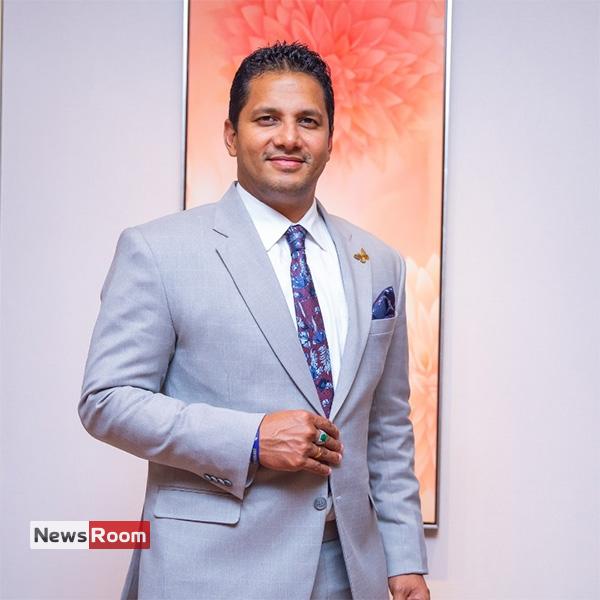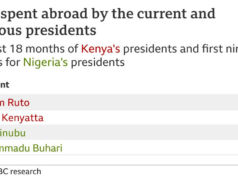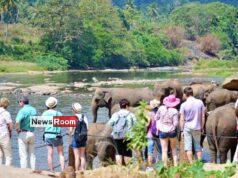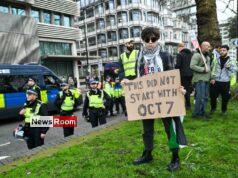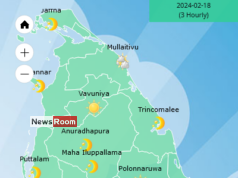By Rohana R. Wasala
The Jerome Fernando escapade, if rightly handled, will provide a golden opportunity to neutralise external threats to the prevailing peaceful religious coexistence in the Sinhalese Buddhist majority Sri Lanka. I hope that the fair-minded reader will not immediately condemn me as a Sinhalese racist and a Buddhist extremist for stating a rational expectation in those terms based on facts. I am proud of my Sinhalese race, as an individual born to parents considered racially Sinhalese, but I never hold myself as superior or inferior to people of other races, but only as equal to them as humans. I outgrew religion at the young age of 16 and now, in my sunset years, I still remain firm in those my early convictions. I have always tried to follow the secular moral principles intrinsic to Buddhism which inspires the ethical culture into which I was born.
Over the past many days, a maverick Christian pastor, by the name of Jerome Fernando, a self-styled prophet, has been hogging the attention of the media, especially the social media, for insulting the Buddha and Buddhism, as well as Hindu and Islamic religions, by making certain derogatory remarks about them during a sermon, or service, that he conducted. He asserted that Jesus was the Light that the Buddha sought. Unfortunately, hardly anyone, among the vociferous critics, seems to understand that Jerome Fernando is bringing disgrace and disrepute to the noble religion he claims to profess through, what Buddhists are likely to consider, his blatant lies, delusional beliefs, and deceptive stratagems.
Kirthi Ratnayake (former Air Force officer turned journalist) said, during an interview with YouTuber Chamuditha Samarawickrema, that Jerome Fernando had once before uttered something worse in Sinhala: ‘budun ettha, namuth satyaya nowei/The Buddha is true, but not the Truth’. If he is rash enough to judge the Buddha, one can guess how impervious he is to the sensitivities of ordinary Buddhists. Judge not, that you be not judged. For with what judgement you judge, you will be judged and with the measure you use, it will be measured back to you (Matthew 7: Verses 1 and 2, NKJV). This is almost identical with Buddhism. Galatians 6: Verse 7 has this: … whatever a man sows, that he will also reap …, which, needless to say, like the above, agrees exactly with the kamma/karma concept of Buddhism.
For the information of Jerome Fernando and the people whom he was trying to mislead, (particularly for the benefit of the latter) I offer the following facts: Gautama Buddha used the metaphor of light for the Enlightenment he achieved: Declaring “aloko udapadi” “Light arose”, he rejoiced soon after his Enlightenment. He visited his five former closest colleagues and co-seekers to share with them what he had discovered: “There arose in me vision, knowledge, wisdom, true knowledge, and light”. That is, light came to him with his Enlightenment. (Incidentally, the traditional Vesak illuminations that you saw in Sri Lanka around May 5 and 6 were for commemorating the Buddha’s Enlightenment, the Arising of the Light.) The Buddha dedicated his life to teaching and guiding people towards seeing the Supreme Truth of Nibbana. Never did he force anyone to accept his teaching and follow it unless they saw for themselves its potential for enabling them to realise the ultimate truth through their own unaided individual efforts. If you are ill, you must take medicines. No one else can take medicines for your illness. You are your own saviour. In the last analysis, this is pretty much what all religions teach their followers (I don’t include Buddhism among religions). Each individual is responsible for his or her own emancipation (from the unsatisfactory state of earthly existence). ‘Atta deepo bhava/Be a light or lamp unto yourself’ is the essence of the Kalama Sutta to which I will refer later in this essay.
But let’s begin from the beginning. According to news reports, published in online sources that I usually access, Vidura Wickremanayake, the Minister for Buddhashasana, Religious and Cultural Affairs, stated that he was going to take stern action against Pastor Fernando. President Ranil Wickremesinghe instructed Sagala Ratnayake, Presidential Advisor and head of the Presidential Task Force, to initiate an immediate investigation into Fernando, whose irresponsible statements, he said, could lead to conflicts that would be detrimental to religious reconciliation. Their assurances ring hollow, though, to say the least.
Knowledgeable critics, such as Dr Wasantha Bandara, spokesperson for the Federation of National Organisations (FNO), says that Wickremesinghe (if he was really serious) should have assigned the task mentioned to the DIG, who is equipped with the knowledge, competence and capacity, and has the necessary personnel to do it, instead of instructing Ratnayake. As for Minister Wickremanayake, when he visited the Eastern Province as Minister a couple of years ago, he didn’t care to listen to the grievances of the well-known Madakalapuwe Hamuduruwo, who is still conducting his lone struggle against corrupt and inefficient government servants of his area who, under the influence of the local racist and casteist MPs, neglect to perform their duties properly to relieve the hardships of the innocent poverty-stricken rural residents of a couple of isolated villages there, belonging to all three communities. The Minister, on that occasion, did not forget to exchange pleasantries with the very Tamil MPs, or their stooges, he was complaining against, waiting not far from where he was standing, to urge the visiting dignitary to look into his legitimate petitions, on behalf of those suffering people. Obviously, political considerations prevented the Minister from attending to the monk, who later showed the episode in one of his YouTube videos. I derived this information from that video.
Having said that, in my humble opinion as a genuinely concerned, but not unduly worried, ordinary Sri Lankan, the President’s or the Minister’s involvement in this case is not necessary (which, I am sure, is their attitude as well) beyond the point where they leave the law enforcement authorities to deal with the matter without any improper interference from any quarter in or with the due legal processes.
Father Cyril Gamini of the Catholic Church, has told the media that Jerome Fernando has no connection with his church. Some prominent Buddhist monks, kurukkals, and maulvis, have also roundly condemned the man, while pointing at the existing inter-religious amity in the Buddhist-majority country. However, Fernando’s proselytising utterances and activities have different implications for the adherents of the four main religious faiths of Sri Lanka, Christians and Muslims on the one hand, and Buddhists and Hindus on the other. Therefore, they are bound to create distrust and disharmony between the diverse communities. To preserve the unity in diversity that we have enjoyed for many centuries and still cherish, Fernando must be exposed for what he is, and the poison he has begun spreading must be immediately counteracted.
Although there is no one single definition of religion, universally accepted by scholars of religious systems around the world, the most commonly accepted one (particularly, in the West) is what the Oxford Dictionary defines as ‘the belief in and/or a superhuman controlling power, especially a god or gods’. Hinduism and Buddhism cannot be classified as religions, according to this definition, though they also have certain specific spiritual concepts and practices considered sacred that inform long established cultural traditions, involving ritual observances, shrines, and objects of worship. Emeritus professor of Princeton Theological Seminary, Max Lynn Stackhouse, provides a definition of religion that I think might roughly accommodate Buddhism and Hinduism: (a religion is) “a comprehensive worldview or ‘metaphysical moral vision’ that is accepted as binding because it is held to be in itself basically true and just even if all dimensions of it cannot be either fully confirmed or refuted.”
Now, the problem is that in less enlightened times, believers in religions, covered by the Oxford Dictionary definition given above, were required to dismiss other religious belief systems that didn’t come within that identification, as ‘heresies’. That term used to be applied to the Dharmic religions of Hinduism, Jainism, and Buddhism. But Abrahamic religions (Christianity and Islam, not to mention Judaism) have moderated that extremist attitude since. Only a few extremists today would hold on to mediaeval ideas which usually led to violence against people of other spiritual traditions, whom they considered ‘infidels’. Jerome Fernando may be harking back to that outdated mentality, which was behind zealous, self-righteous conversion movements targeting unbelievers or non-believers who were deemed to be in need of being saved in so-called pagan lands; such proselytising attempts were not always nonviolent.
In Sri Lanka, freedom of religion is constitutionally guaranteed to all the citizens. A citizen can profess any religion, practise it, teach it, and disseminate its message among others, but through legitimate means. The sort of blatant abuse of Sri Lanka’s most liberal institution of freedom of religious belief and practice that Jerome Fernando is being accused of cannot be expected of a pastor who claims to have been inspired by Jesus’ answer to a question by Nicodemus the Pharisee (a prominent Jew of the time credited with thorough knowledge of the scriptures and great saintliness): “Most assuredly, I say to you, unless one is born again, he cannot see the kingdom of God” in the Gospel according to John 3:3 (NKJV), where this means ‘born again in spirit, not in flesh’. For the Christian believer this is deeply meaningful. A believer who has ‘seen the kingdom of God’ cannot be thought to be guilty of such outrageous conduct as Jerome Fernando is displaying. By the way, this ‘born again’ idea is akin to the ‘twice born’ (Sanskrit: dvija) sacrament of initiation of a young Brahman’s spiritual journey in terms of Hinduism. Buddhism and the more ancient Hinduism have much in common, and are almost identical in their Dharmic aspect, except that Buddhism has no belief in the existence of an eternal soul (Atman) unlike Hinduism.

